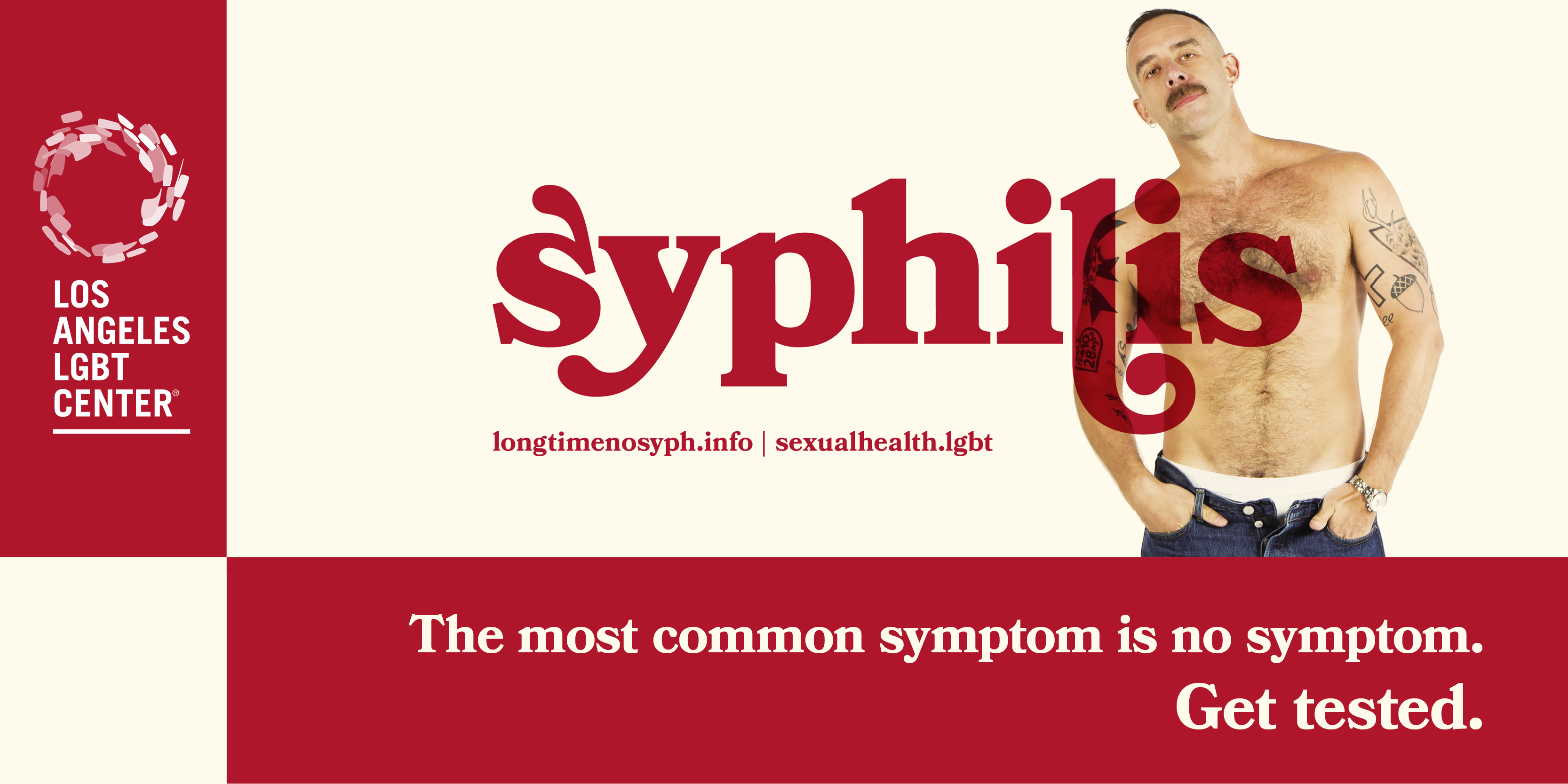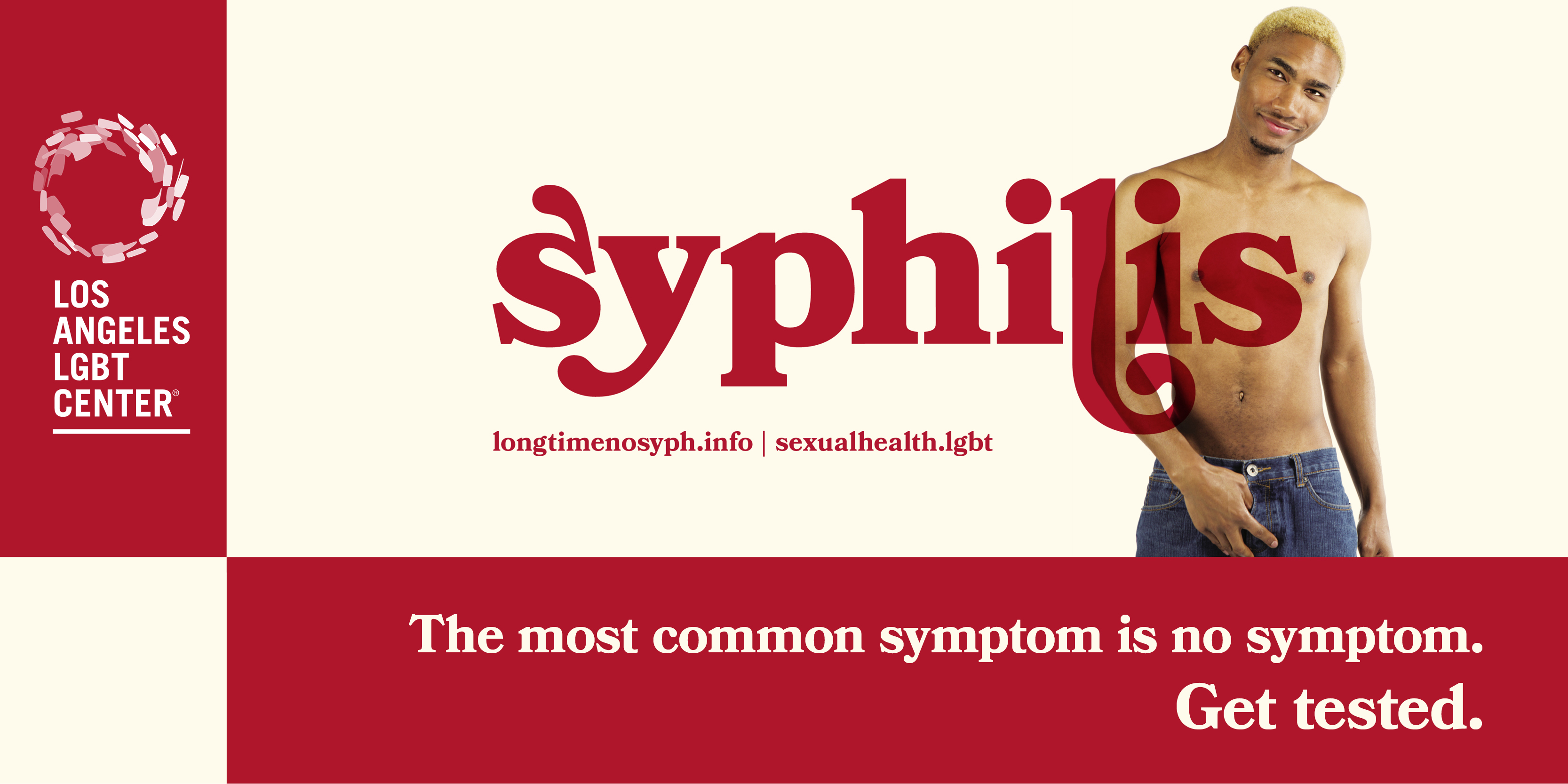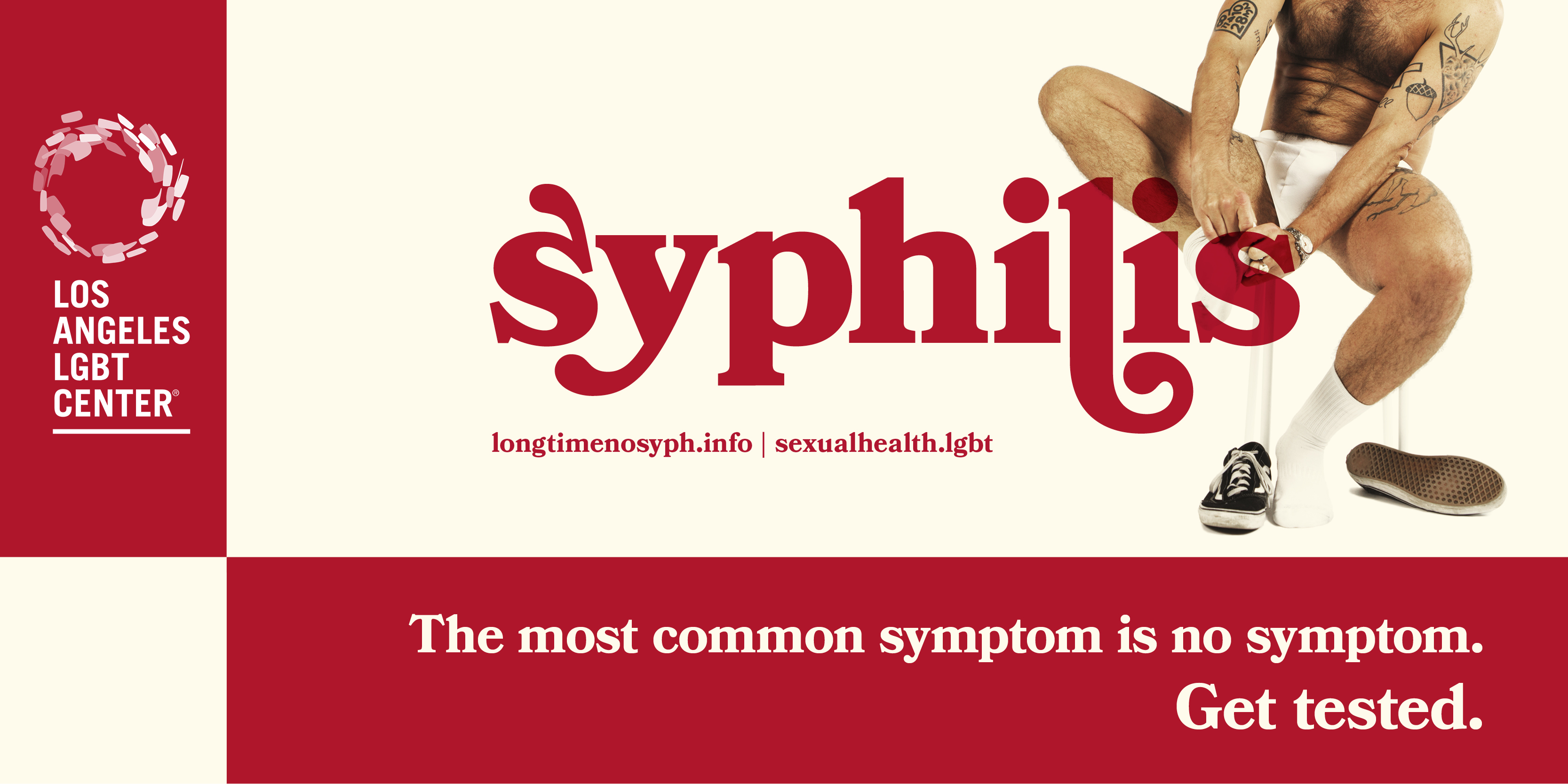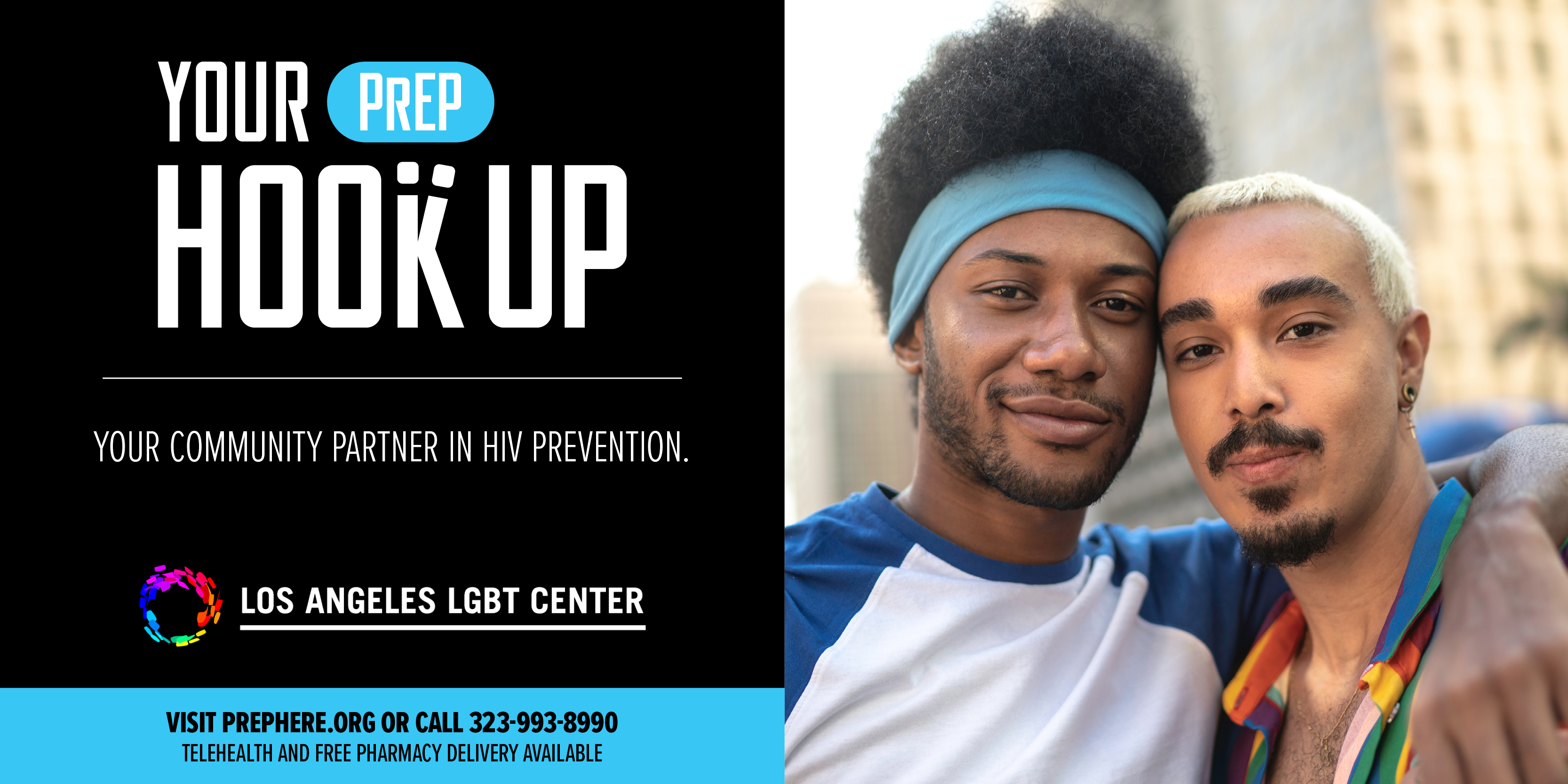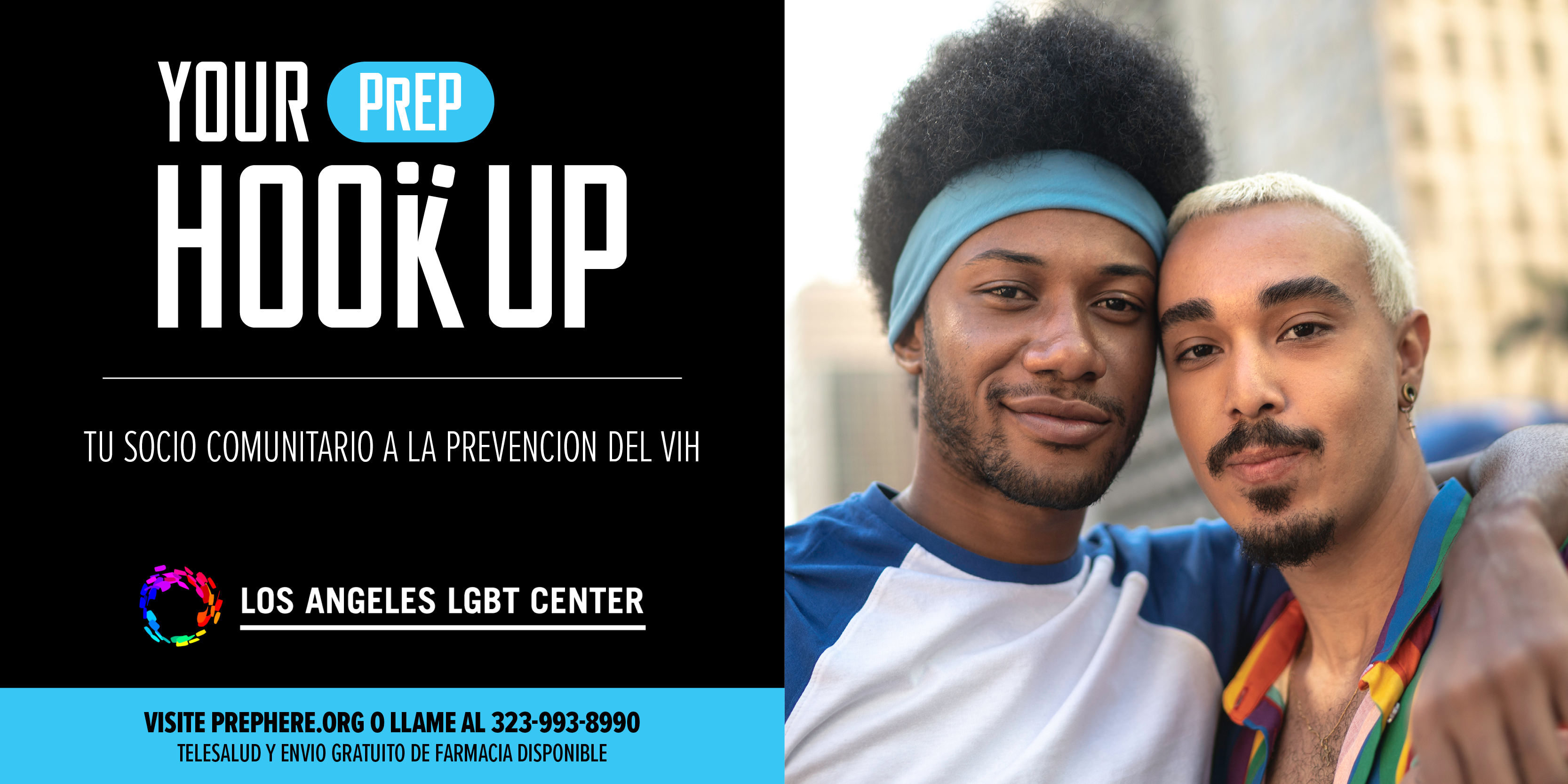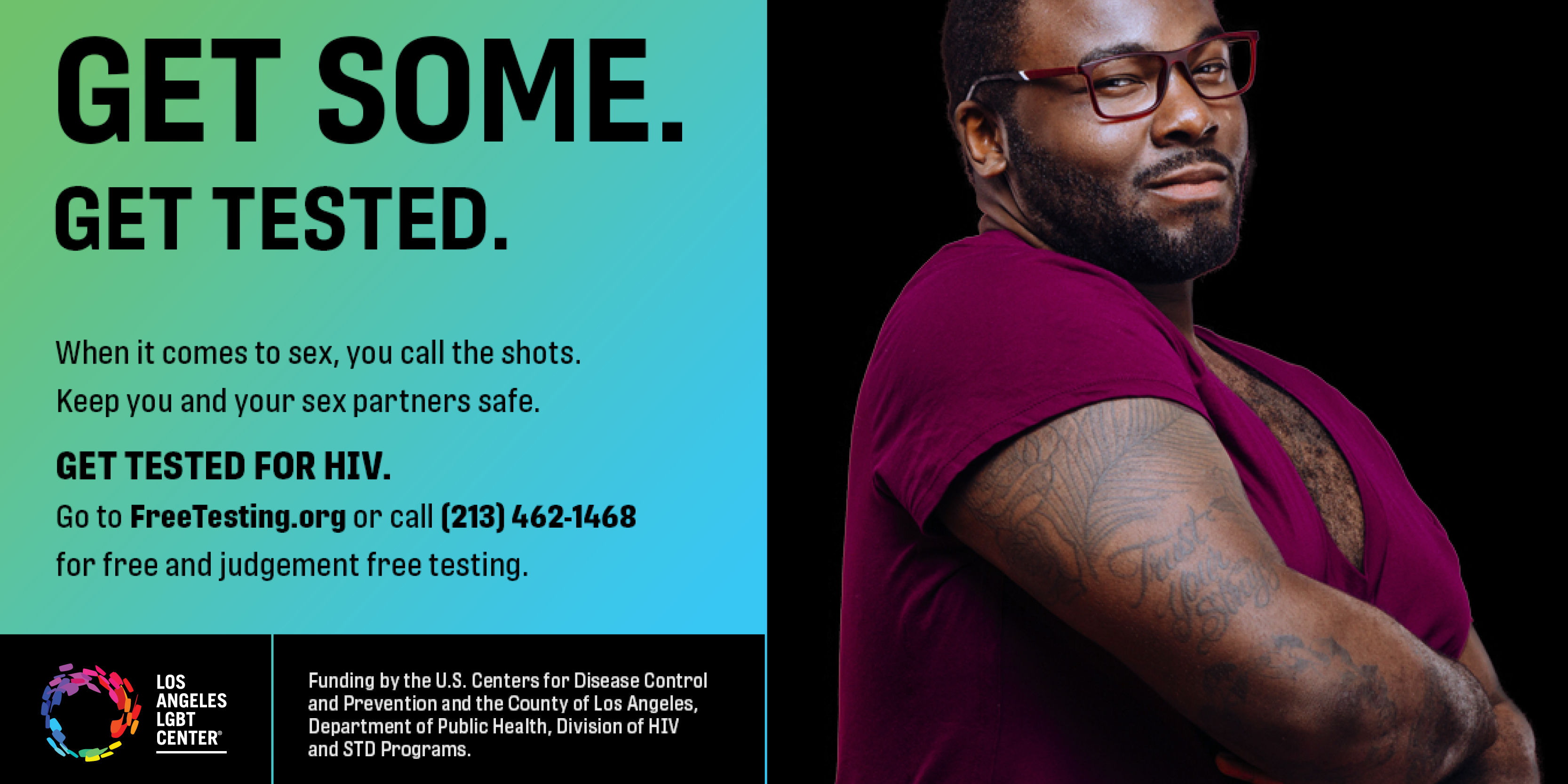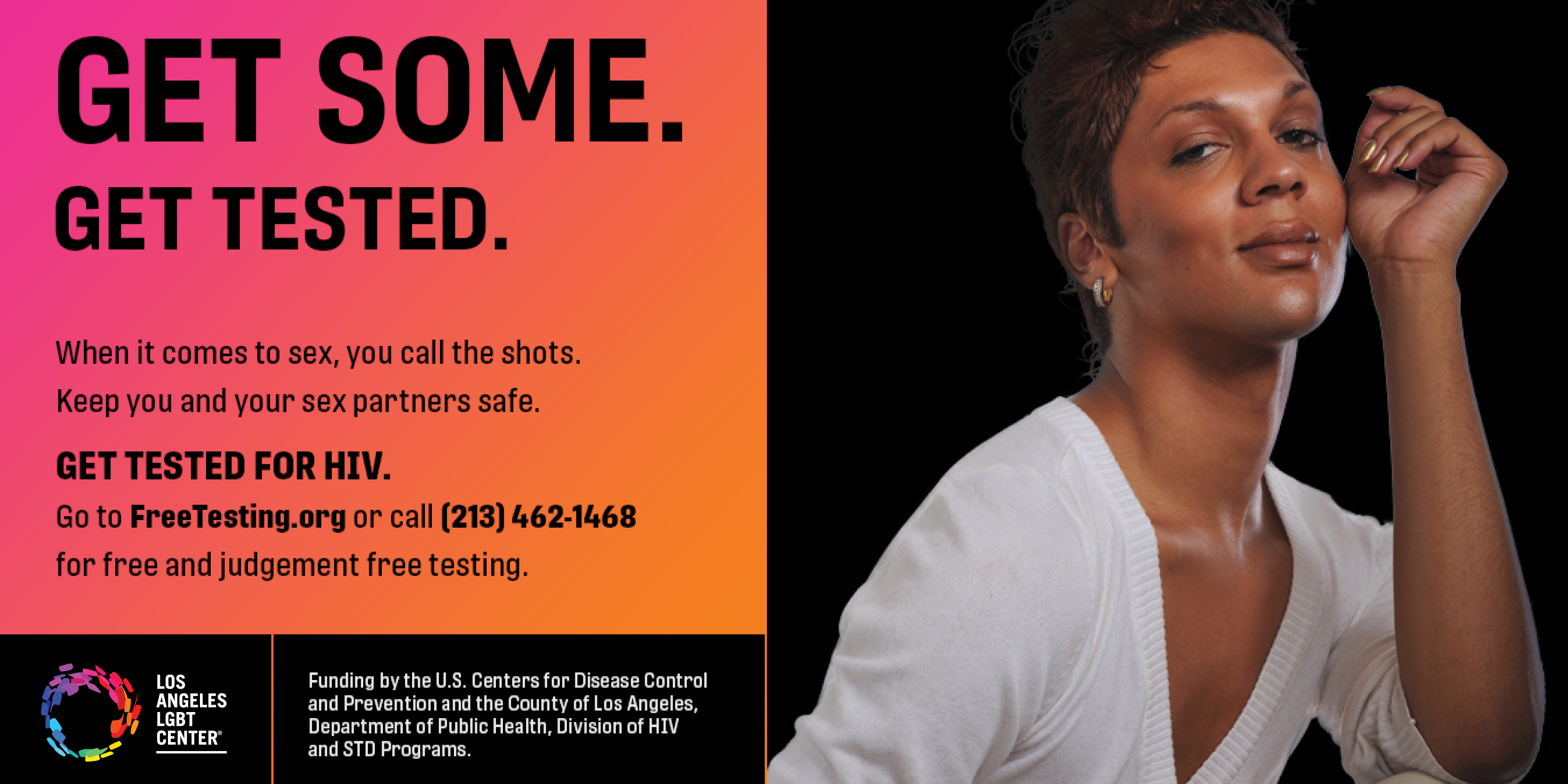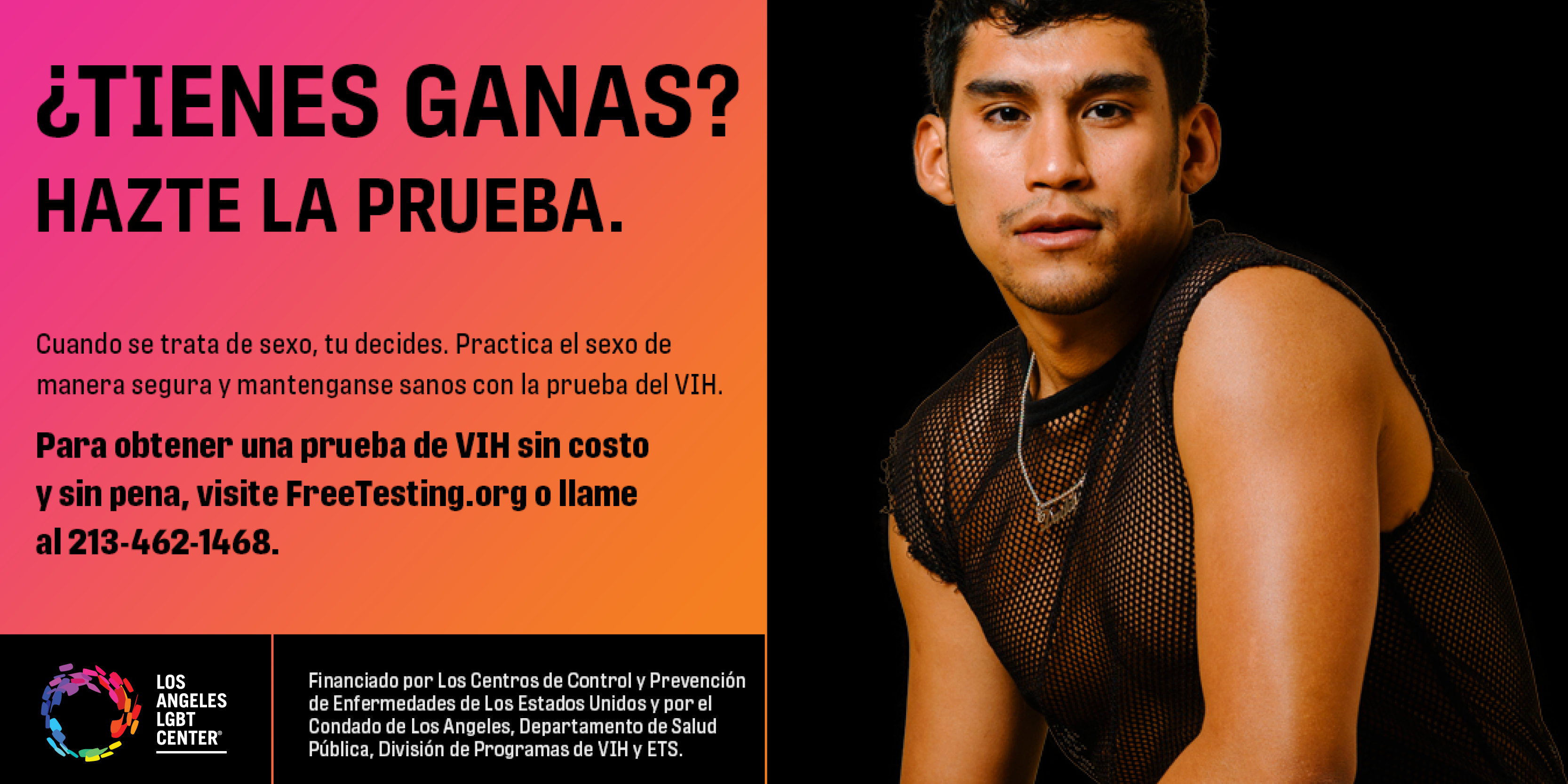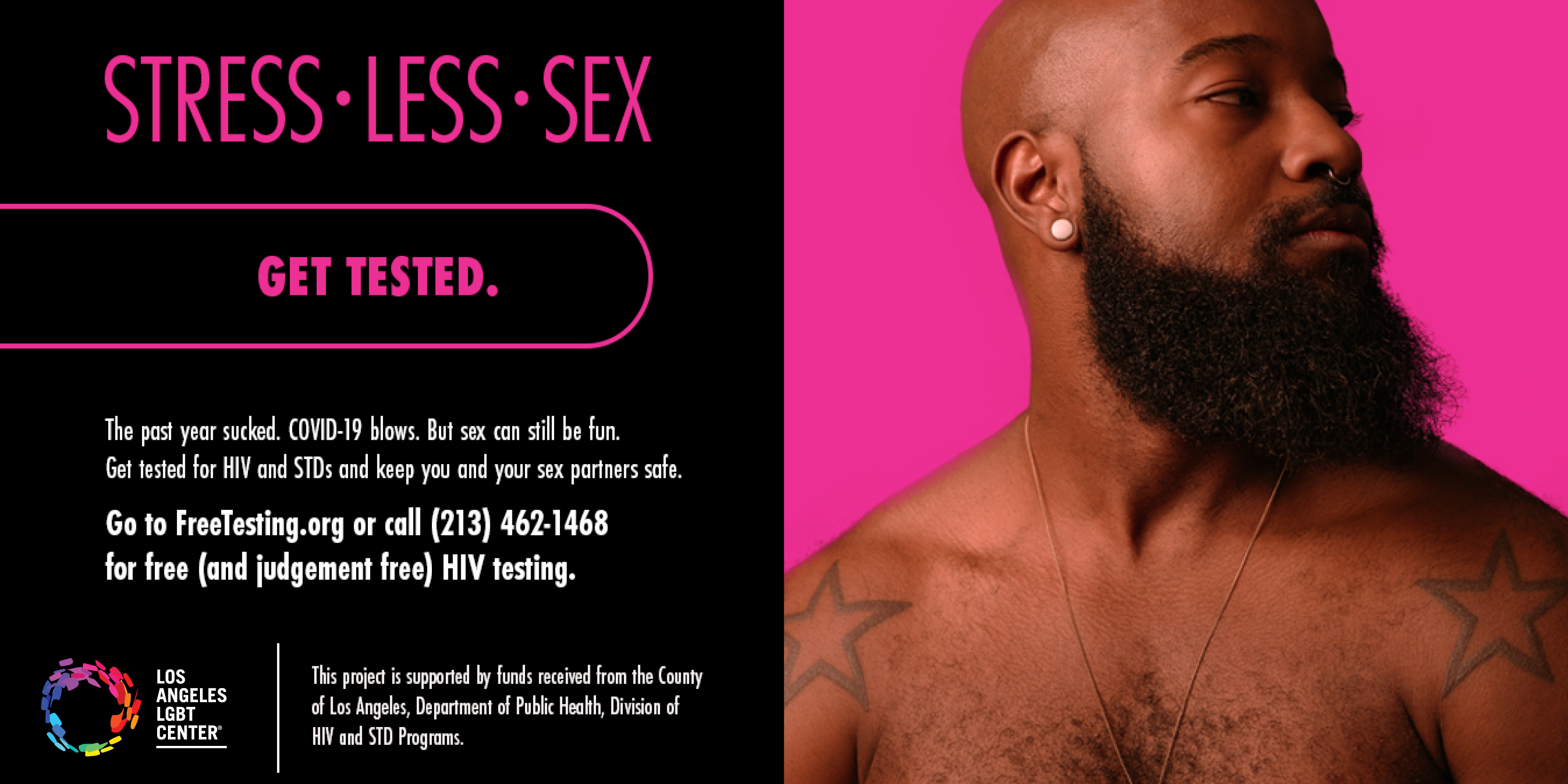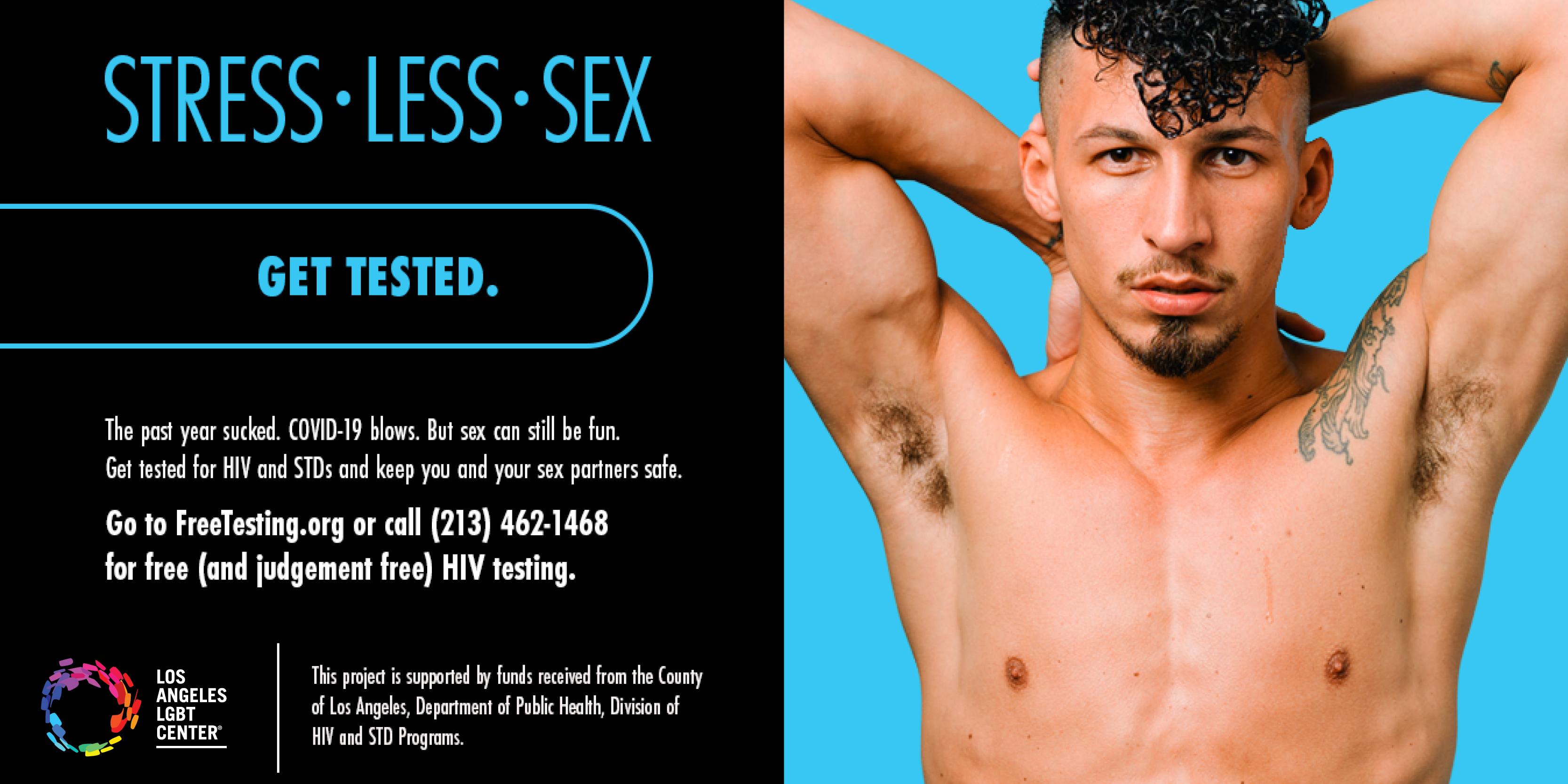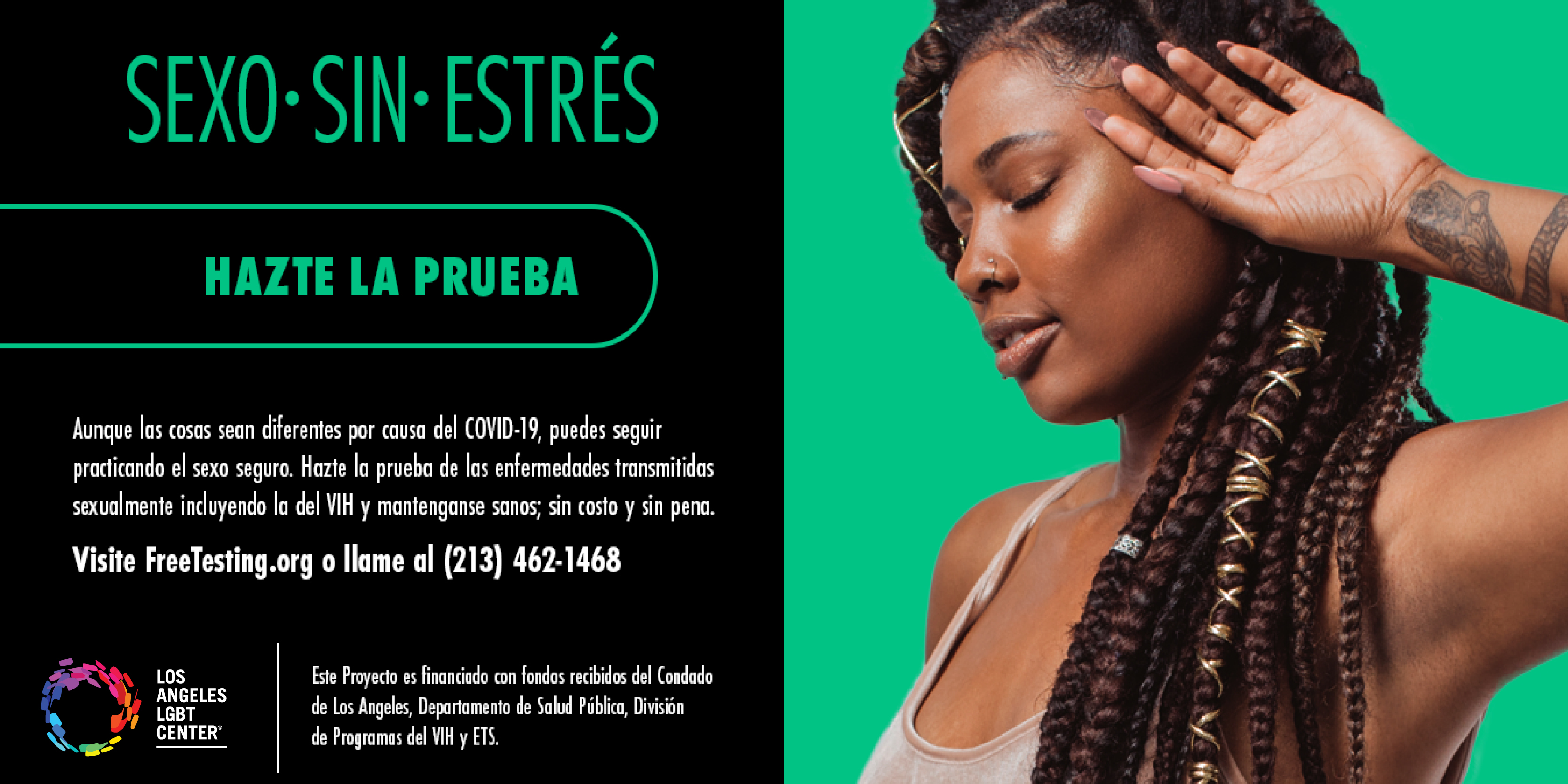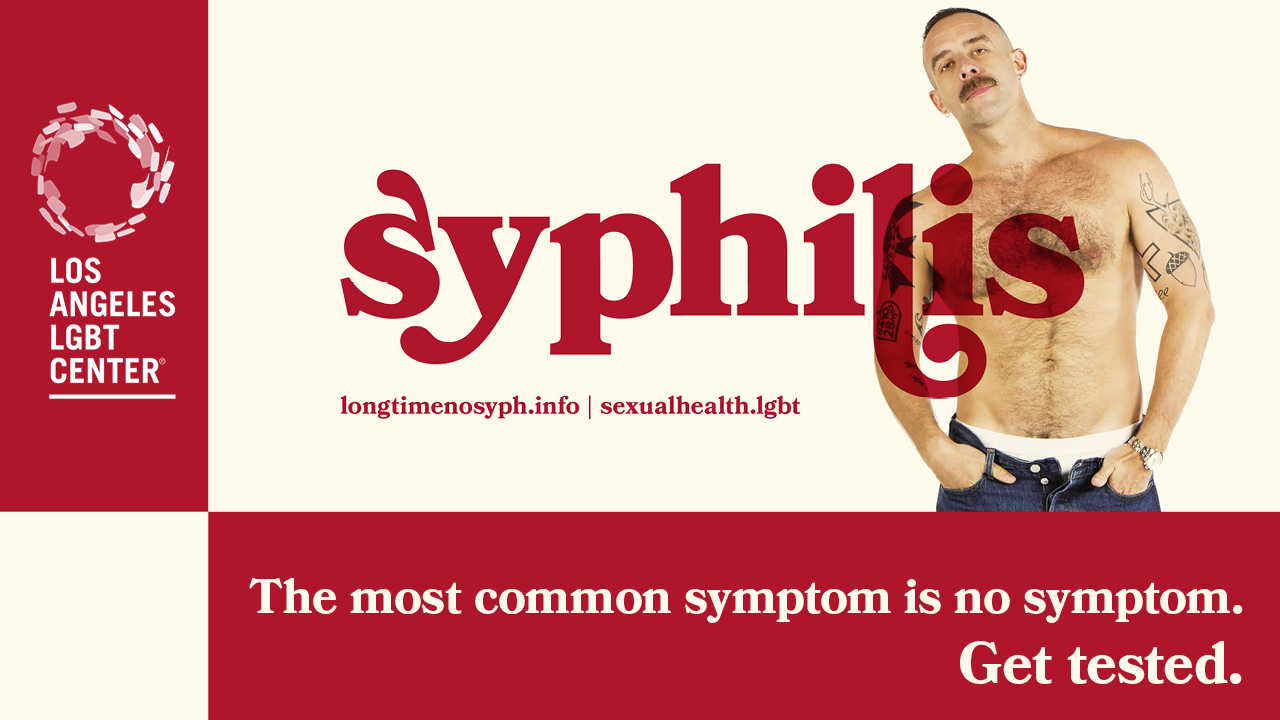
Now with a pill, you can protect yourself from HIV. Though PrEP doesn’t offer protection from other STDs like condoms do, it’s safe and reduces the risk of HIV infection by up to 99% when used daily. It’s also affordable for most, thanks to patient assistance programs and insurance coverage.
Do you want to be PrEP’d AF against HIV? The Los Angeles LGBT Center can help
Our approach to testing and treatment is fast, friendly and comprehensive. Using the most accurate and reliable tests available, we can detect HIV as early as 7 days after exposure. We’ll also test for gonorrhea, chlamydia and syphilis—those results are available in a week.
|
|
WHEN & WHERE CAN I GET TESTED?Your sexual health is our priority at the Center, where you can always feel completely comfortable discussing whatever factors may be influencing your wellness. And should you test positive for HIV or any other STIs, you’re able to receive immediate care and treatment from us. We encourage sexually active people to get tested every three months. To schedule an HIV test, please call 323-993-8990 and press option 3 or 213-462-1468. Please call to schedule an appointment before visiting, if possible. Center South 2313 W. Martin Luther King Jr. Blvd., Los Angeles 90008 Center WeHo 8745 Santa Monica Blvd., West Hollywood 90069 Jeffrey Goodman Special Care Clinic at the McDonald/Wright Building 1625 N. Schrader Blvd., Los Angeles 90028 Mi Centro 553 S. Clarence St., Boyle Heights 90033 Trans Wellness Center 3055 Wilshire Blvd., Suite 360, Los Angeles 90010 |
|
|
HOW MUCH DOES IT COST?Testing for HIV and other sexually transmitted diseases and PrEP consultations are free (donations are welcomed). If you need treatment, we ask those who can afford it to help cover the costs or to allow us to bill their insurance carrier, if they have one. But no one will ever be turned away because they’re uninsured or unable to pay. |
|
|
WHAT DO I NEED TO BRING?For a full HIV/STD screening, you must bring your photo ID. Your test results, which are confidential and tracked by name, they’re only viewed by Center medical staff and health officials. You have the option to request a printed report of your results. If you’re not comfortable showing a photo ID, you can be tested for HIV anonymously (without providing your name) at the McDonald/Wright building, but not the Center-WeHo. For STD testing, however, a photo ID is always required. |
|
|
WHAT ABOUT PARKING AND PUBLIC TRANSPORTATION?PUBLIC TRANSPORTATIONSeveral bus lines serve both the Center-WeHo and the McDonald/Wright building, which is on the Metro Red Line midway between the Hollywood/Vine stop and the Hollywood/Highland stop. Visit Metro.net to plan your trip. PARKINGCenter-WeHo: One-hour free parking before 6 p.m. is available across the street next to Tender Greens. Free validated parking is also available at the West Hollywood city parking garage at 625 N. San Vicente Blvd, next to the new library. McDonald/Wright Building: Free parking (4 hours) is available behind the building. |
|
|
WHAT IF I TEST POSITIVE FOR HIV OR STDs?If you have symptoms of a sexually transmitted disease, we can provide medicine the same day you visit. If you have no symptoms but test positive for an STD, we’ll notify you by phone. Then we can schedule an appointment to provide medical treatment. If the test reveals an HIV infection, our counselors will help you understand the implications of living with HIV and tell you about valuable resources at the Center, including these free and low-cost services:
|
|
|
I HAVE SYMPTOMS OF AN STD – CAN YOU HELP?Yes! Please come meet with one of our providers and if you have symptoms, we may be able to offer immediate treatment for the STD after we test you for gonorrhea, chlamydia and syphilis. Results for those tests are available in a week. Call 323-993-8990 to schedule an appointment. |
PrEP (Pre-Exposure Prophylaxis) is medication to help protect you from becoming HIV infected if you take it regularly before sex.
PEP (Post-Exposure Prophylaxis) is medication that has been shown to prevent HIV infection after exposure, if you’re treated within 72 hours.
|
|
What is post-exposure prophylaxis?Post-exposure prophylaxis (PEP) is the practice of starting a month-long (28 day) course of anti-HIV medications within 72 hours of possible exposure to the virus to prevent permanent infection. These medications keep HIV from making copies of itself and spreading through your body. To be effective, PEP needs to be started as soon as possible, preferably within 36 hours and no later than 72 hours after exposure to HIV. PEP consists of 2-3 antiretroviral medications that are prescribed by a medical provider. The provider will determine what treatment is right for you based on how you were exposed to HIV. PEP is safe but may cause side effects like nausea in some people. These side effects can be treated and are not life threatening. PEP is not 100% effective; it does not guarantee that someone exposed to HIV will not become infected with HIV. |
|
|
How do I get PEP?The Los Angeles LGBT Center and our Center-WeHo offer PEP. Based on your income, you may even qualify for free treatment. To learn more, please call us at (323) 860-5855 (Option 4), Monday through Friday from 11 a.m. - 6 p.m. Note: If you believe you were exposed on Friday night or on Saturday, you should consider going to the emergency room of a hospital to access PEP. |
|
|
How does PEP stop HIV?PEP contains some of the same medicines that people with HIV take to stay healthy. If you are exposed to HIV, it takes a few days for an HIV infection to take hold in your body. As soon as you start PEP, these medicines begin to stop the virus from multiplying. As you continue taking PEP for the full 28–days, cells with HIV die and the virus stops spreading to the rest of your body. PEP’s effectiveness varies depending on when it is initiated; according to the CDC it can be up to 80% effective. However, it is not effective in all cases. |
|
|
Who Needs PEP?PEP can be used to treat people who may have been exposed to HIV during a single event (e.g., during episodes of unprotected sex, needle-sharing injection drug use, or sexual assault). PEP should only be used in uncommon situations right after a potential HIV exposure. It is not a substitute for other proven HIV prevention methods, such as PrEP, correct and consistent condom use, or use of sterile injection equipment. Because PEP is not 100% effective, you should continue to use condoms with sex partners while taking PEP and should not use injection equipment that has been used by others. This will help avoid spreading the virus to others if you become infected. |
|
|
When Should I Take PEP?To be effective, PEP must begin as soon as possible, but always within 72 hours of exposure. Your healthcare provider will consider whether PEP is right for you based on how you might have been exposed and whether you know if the person whose fluids you were exposed to might be HIV-positive. You will be asked to return for more HIV testing at 4 to 6 weeks, 3 months, and 6 months after the potential exposure to HIV. For more information, see the Center for Disease Control and Prevention's (CDC's) PEP Basics page: http://www.cdc.gov/hiv/basics/pep.html |
|
|
What is pre-exposure prophylaxis?Pre-exposure prophylaxis, or PrEP, is commonly known as the HIV prevention pill. PrEP involves taking a daily dose of Truvada, which is made of two drugs—Tenofovir and Emtricitabine. After taking them for a period of time, they can prevent HIV from infecting healthy cells. |
|
|
How effective is PrEP?When taken daily as directed, PrEP is 99% effective in protecting HIV-negative people from HIV. PrEP is even more effective when it is combined with other prevention methods, such as condoms. |
|
|
Do I still need to use condoms if I’m on PrEP?Some people will keep using condoms while on PrEP and others will decide to stop using them. If you are already using condoms consistently, and doing so makes you feel comfortable and protected, then keep doing what feels right to you. Many people struggle with using condoms consistently, which is one reason why PrEP was developed. You have to decide for yourself what level of protection feels right and gives you the peace of mind to lead a sexually fulfilling life. |
|
|
Will PrEP also protect me from other sexually transmitted diseases (STDs)?PrEP does not prevent you from contracting sexually transmitted diseases (STDs) such as gonorrhea, chlamydia, or syphilis. Consistent and correct use of condoms can reduce your risk of contracting or transmitting STIs. It is important for you to be regularly tested for these infections and to be treated promptly if you find out that you are infected. |
|
|
How often do I need to take PrEP for it to be effective?The use of daily PrEP is highly effective if taken every day, less effective if pills are not taken daily. Before starting PrEP, it’s important for you to determine if you are comfortable and confident in your ability to take a daily pill to prevent HIV. PrEP only works if you take it! NOTICE: When starting PrEP, it is estimated that 7 days of daily dosing is needed to achieve protective concentrations for receptive anal sex. PrEP is not just about taking a pill every day. If you decide to take PrEP, you’ll need to see your provider at least every three months for routine care and HIV/STD testing. |
|
|
How can I decide if PrEP is right for me?The Center has developed a quick online tool to help you determine how strong a candidate you are for PrEP. Click here to check your PrEP Score. |
|
|
How can I access PrEP?We make it easy and affordable for most people to leave our offices with a prescription after your first visit. If you don’t have insurance, we may be able to help you qualify for a patient assistance program. If you have insurance, we can bill most plans (other than HMO insurers like Kaiser Permanente) for your prescription and our services. We encourage you to book a free consultation with one of our PrEP counselors by calling 323.993.8990. You can also drop by, but wait times will vary. Your primary care provider can also prescribe PrEP for you. Before discussing it with your doctor, we suggest you make a list of the reasons you think PrEP would be a good choice for you. Be as honest as possible so your provider can help you make the best decision. If your sex life is a hard topic to talk about, say that to your provider. It will help to start the conversation. Some providers may not know about PrEP or may not be knowledgeable or comfortable discussing PrEP or your sexual health. If you do not have a provider, or if your medical provider does not feel comfortable helping you make this decision and prescribing PrEP, you're welcome to get your medical care from the Los Angeles LGBT Center. If you and your provider agree that PrEP is right for you, your provider will conduct a general physical and test you for HIV and other STDs. Your blood will also be tested to see if your kidneys and liver are working well. NOTICE: Be sure to inform your provider about any current medications that you are taking (including vitamin supplements, work out supplements, herbs, etc.). Example: Creatine supplements can throw off the blood test that measures kidney function. |
|
|
What about side effects from taking PrEP? How will my body be affected?PrEP is generally safe and well tolerated. Some people in clinical studies of PrEP had early side effects such as nausea, upset stomach, diarrhea, mild headache, or dizziness, but these were mild and usually went away in the first month. PrEP may also cause decreases in kidney function and bone density, however, research suggests that side effects while using PrEP are generally mild and uncommon. No serious side effects were observed. You should tell your health care provider if these or other symptoms become severe or do not go away. |
|
|
How much does PrEP cost, with and without insurance?We help make PrEP affordable. It’s covered by most private insurance programs and Medi-Cal and we can often help those who are uninsured qualify for a patient assistance program. If you have private healthcare insurance, you can expect to pay your normal co-pay associated with brand-name drugs. The co-pay will vary from plan to plan. Some insurance companies will, however, require certain pre-authorization requirements to determine if you are eligible to have PrEP covered. In some cases, even with insurance, the co-pay may make PrEP unaffordable. Through the Gilead Co-Pay Assistance Program we can help those who are eligible have the cost of their co-pay covered. The Los Angeles LGBT Center has a team of Linkage to Care Navigators who work one-on-one with patients to answer questions about PrEP, offer guidance with navigating health insurance plans, assist with benefit enrollments (including medication assistance programs), and scheduling appointments. You can call 323.993.8990 to book an appointment for a free PrEP consultation. We can provide general transportation assistance, if needed, to either the Center’s McDonald/Wright Building in Hollywood or the Center-WeHo for your first PrEP consultation. |
|
|
How do I get to the Center?PUBLIC TRANSPORTATIONSeveral bus lines serve both the Center-WeHo and the McDonald/Wright building, which is on the Metro Red Line midway between the Hollywood/Vine stop and the Hollywood/Highland stop. Visit Metro.net to plan your trip. PARKINGCenter-WeHo: One-hour free parking before 6 p.m. is available across the street next to Tender Greens. Free validated parking is also available at the West Hollywood city parking garage at 625 N. San Vicente Blvd, next to the new library. McDonald/Wright Building: Free parking (4 hours) is available behind the building. We can provide general transportation assistance, if needed, to either the Center’s McDonald/Wright Building in Hollywood or the Center-WeHo for your first PrEP consultation. Indicate you need that when scheduling your consultation online. |
Online resources regarding PrEP
| AIDS.gov |
PrEP information page |
| CDC.gov |
Questions and answers about PrEP from the U.S. Centers for Disease Control and Prevention |
| My PrEP Experience |
Real stories from real people who adopted PrEP for prevention in the US |
| PrEP Facts |
San Francisco AIDS Foundation PrEP information in visual format for MSM and heterosexual individuals, with an option for Spanish |
| Project Inform |
Videos, publications and resources on PrEP |
| Start.truvada.com |
Information about Truvada for PrEP for healthcare providers, consumers and educators |
Still wondering whether PrEP is right for you? This tool can help you determine how strong a PrEP candidate you are by assessing your individual risk of becoming HIV-positive. This was developed with data from gay and bisexual men living in Los Angeles, so it may not be reliable for heterosexual individuals, trans* individuals, injection drug users, people living outside Los Angeles, or for HIV-negative guys who are in a long-term relationship with HIV-positive guys.
Whatever your gender identity or sexual orientation, this tool developed by the CDC can help you assess the risk of HIV transmission from various sexual activities.
Regardless of your risk score, people have many reasons for starting PrEP, so this tool should NOT be the only factor in deciding whether or not to take PrEP. This is not a substitute for advice from your medical provider.
Your score is less than 5, indicating you are currently at low risk for HIV.
If you have a risky sexual experience, you may be better suited for post-exposure prophylaxis or PEP. PEP is often the same medication as PrEP, but you would take it after unprotected sex (instead of before) and for only 28 days instead of continuously.
Even though your risk of infection is relatively low, you may be interested in the added protection PrEP offers. You can schedule a free PrEP consultation at the Los Angeles LGBT Center where one of our counselors can help you determine whether or not PrEP is right for you.
To get PEP at the Los Angeles LGBT Center, call 323.993.8990.
Your score is between 5 and 8, indicating you are at moderate risk for HIV.
We encourage you to schedule a free PrEP consultation at the Los Angeles LGBT Center so one of our counselors can help you determine whether or not PrEP is right for you.
Uninsured? We may be able to help you qualify for patient assistance programs. If necessary, we can also offer general transportation assistance.
Not in Los Angeles? Use the links below to find a PrEP provider near you.
Your score is 8 or higher, indicating you're at high risk for HIV.
We encourage you to schedule a free PrEP consultation at the Los Angeles LGBT Center so one of our counselors can help you determine whether or not PrEP is right for you.
Uninsured? We may be able to help you qualify for patient assistance programs. If necessary, we can also offer general transportation assistance.
Not in Los Angeles? Use the links below to find a PrEP provider near you.

If you’re interested, we encourage you to schedule a free PrEP consultation by calling us at 323-993-8990. You can also just drop by, though wait times will vary.
We can provide general transportation assistance, if needed, to either the Center’s McDonald/Wright Building in Hollywood or the Center-WeHo for first-time PrEP counseling visits.
BOOK A FREE CONSULTATION
If you’re interested in a free PrEP consultation at Center-WeHo in West Hollywood or at the McDonald/Wright Building in Hollywood, please call us at 323-993-8990.
We can provide general transportation assistance, if needed, to either facility for first-time PrEP counseling visits.
Note: PrEP consultations do not include a medical visit.

